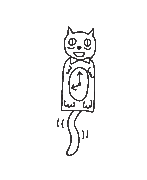In our blog, Is the Zero Waste Trend Sustainable?, we found that despite a growing zero waste movement among individuals, businesses and local governments around the world, the amount of trash we create each year continues to grow.
Zero waste as a consumer activity is just another form of capitalism, and the trendiness of “green” consumer products makes it look like only the privileged can access a “sustainable lifestyle.” Yet, true zero waste has been practiced by Indigenous cultures and communities of color for far longer than it’s been a trend.
THE LEGACY OF ZERO WASTE
We’ve been speaking with leaders in the zero waste and sustainability spaces to try and understand more about where zero waste practices come from, and how that legacy can help inform our actions today.
Our guests all come from different backgrounds and practices, yet each of them emphasized the importance of including justice in our environmentalism. They talked about the need for abolition, to listen to the wisdom of Indigenous people, and to take biocultural diversity into account when thinking of place-based, community-led solutions to the climate crisis.
Our main takeaway from these conversations? The legacy of zero waste - past, present, and future - is the inherent relationship that we have with the Earth and all of its inhabitants.
[bc-columns action="new columns"] [bc-columns action="new column" class="half"]
[bc-columns action="end column"] [bc-columns action="new column" class="half"]
When we spoke to Freweyni Asress of @zerowastehabesha she told us that our movements must be focused on joy, and taking action that brings us closer to freedom. She also reminded us that there are countless zero waste habits that people in the global south practice every day.
“People of color, we do have a long reaching history of caring for the planet. We don’t need to prove that we care about the planet—that's centering whiteness.”—Freweyni Asress
Freweyni is a curator, facilitator and organizer rooted in Washington, D.C. She’s the creator of Zero Waste Habesha, an online multimedia project cultivating a community of Black and Indigenous organizers, creators and cultural workers. Freweyni’s work focuses on Black ecology, ecosocialism and abolition.
[bc-columns action="end column"] [bc-columns action="end columns"][bc-columns action="new columns"] [bc-columns action="new column" class="half"]
[bc-columns action="end column"] [bc-columns action="new column" class="half"]
Kamea Chayne of @greendreamerpodcast
talked about how scalable and patentable “solutions” to the climate crisis with big green funding behind them won’t work. She emphasized the importance of contextualizing plastic pollution and other aspects of the climate crisis by taking into account our colonialist, imperialist history as well as our current capitalist systems.
“We fundamentally need relational shifts beyond the things we buy. We can’t achieve sustainability within an extractive and exploitative system.”—Kamea Chayne
Kamea (she/they) is a curious creative and her podcast explores possible pathways to true abundance and wellness for all. Through Green Dreamer and her personal work, Kamea asks hard questions about all things sustainability while centering regenerative healing and biocultural diversity.
[bc-columns action="end column"] [bc-columns action="end columns"][bc-columns action="new columns"] [bc-columns action="new column" class="half"]
[bc-columns action="end column"] [bc-columns action="new column" class="half"]
Our conversation with Rishi Kumar aka @farmerrishi
focused on language, and how the words we use shape the way we relate to things. Rishi pushed back against common words used amongst environmentalists—including the word “environment” along with “nature,” “waste” and “zero.”
“The not so subtle message [of zero waste, zero carbon, zero footprint] is that the best you can be is zero, is nothing. That’s some dark shit… You see people getting burned out and falling into deep despair, and we just can’t do that anymore. We have to build each other up. The work right now is healing. Healing ourselves and healing the Earth are one and the same, so we can’t be feeding ourselves these hurtful messages.”—Rishi Kumar
Farmer Rishi (he/him) is an earth and plant lover based outside of Los Angeles, CA. Rishi has been transforming suburban plots of land into flourishing gardens for the last ten years. He also encourages others to tap into their own innate nature through his work at
@sarvodayafarms and @healinggardens.co.
[bc-columns action="end column"] [bc-columns action="end columns"][bc-columns action="new columns"] [bc-columns action="new column" class="half"]
[bc-columns action="end column"] [bc-columns action="new column" class="half"]
Our conversation with Enjoli Ferrari of @lacompost
highlighted the need to meet people where they’re at when building sustainable systems. Listening, prioritizing for self-determination, and providing access where it's needed most is how LA Compost establishes meaningful relationships between people and planet. She also talked about the beautiful lessons we can learn from compost, including how to see “waste” or things that aren’t considered beautiful as an integral part of the whole system.
“I think composting is that tipping point, [...] between systems change and behavioral change. If we can get even just 50% of the city on board, that would translate into a completely new culture and the way we think about everything we utilize.”—Enjoli Ferrari
Enjoli Ferrari (she/her) is Operations & Programs Manager for LA Compost, a non profit that works to restore lost connections to the soil and one another through compost access and education.
[bc-columns action="end column"] [bc-columns action="end columns"]These conversations live in the Zero Waste Legacy series on our IG Live. You can watch them there, or follow the links below to read the transcribed interviews.

